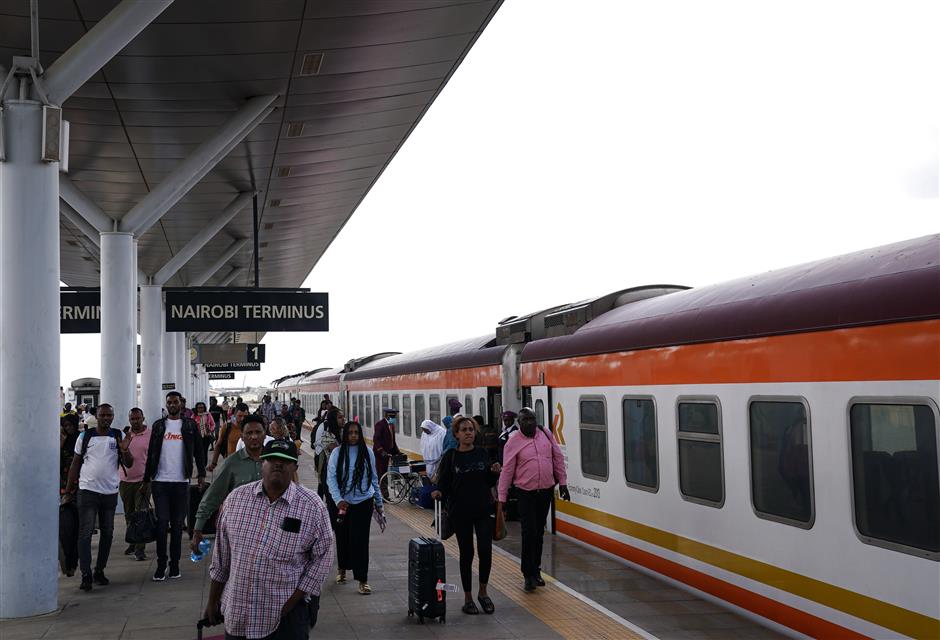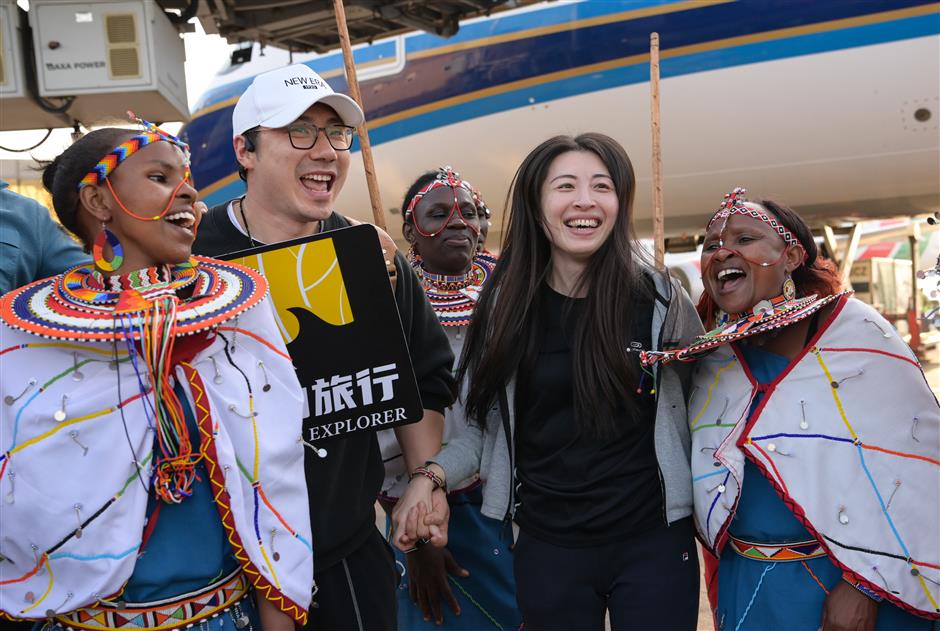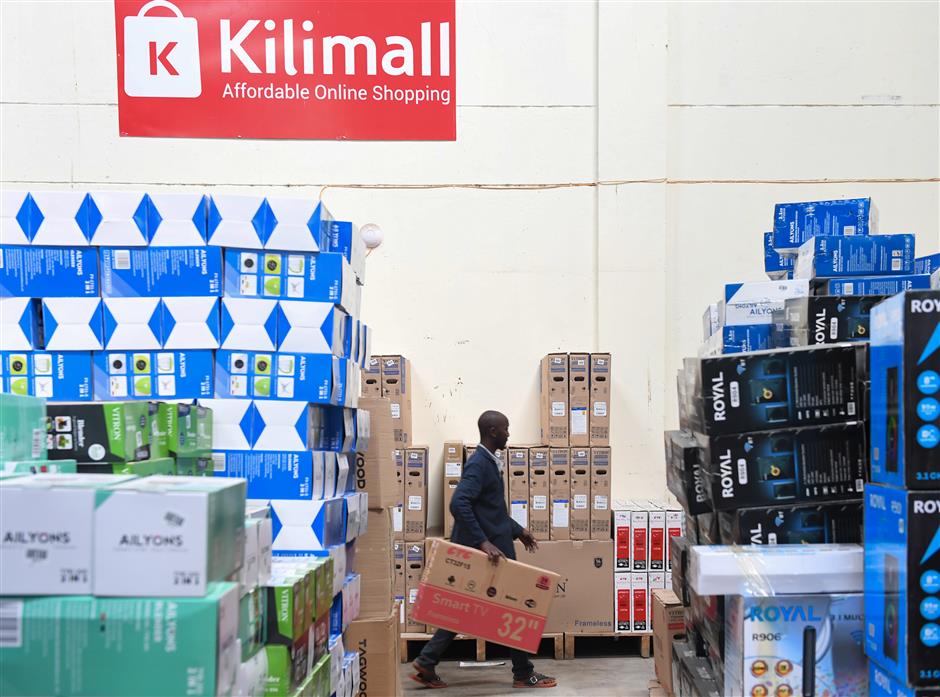Six decades of Sino-Kenyan ties exemplify win-win cooperation
This year marks the 60th anniversary of the establishment of diplomatic relations between China and Kenya though friendly ties between the two countries go back much earlier.
More than 600 years ago, during admiral Zheng He's multiple voyages to the Indian Ocean from 1405 to 1433 during the Ming Dynasty (1368-1644), he traveled to Kenya four times, sowing the seeds of friendship and trust by exchanging china and silk for exotic animals such as giraffe, much cherished as the legendary kylin, a symbol of good fortune.
Only two days after Kenya became independent on December 12, 1963, China set up diplomatic relations with the East African country, and Chen Yi, then vice premier and foreign minister, participated in the grand ceremony marking the independence. On August 20, 1964, Chairman Mao Zedong received a Kenyan delegation at the Great Hall of the People in Beijing. These pioneering efforts helped lay a solid foundation for friendly mutual ties.
Exchanges intensified following China's reforms and opening-up. In May 1994, then President Daniel arap Moi visited China, marking the start of a series of high-level visits over the years, by President Mwai Kibaki, President Uhuru Kenyatta and, most recently, current President William Ruto. Meanwhile, Kenya also became a frequent destination for visits by Chinese leaders.
Given accelerated development in bilateral ties since China's Belt and Road Initiative (BRI), the two countries entered into an equitable and mutually beneficial comprehensive partnership in 2013, which was elevated to a comprehensive strategic partnership in 2017.

The Chinese-built Mombasa-Nairobi Standard Gauge Railway has been a catalyst for transformation in Kenya since its launch six years ago.
As mutual trade and economic cooperation gains momentum, Kenya has become China's No. 1 trade partner in East Africa. For nine years in a row, China has been Kenya's biggest trade partner, with Sino-Kenyan trade worth US$8.52 billion in 2022, up 22.0 percent year-on-year.
Meanwhile, coffee and tea from Kenya are very popular in the China market. In January 2022, China and Kenya signed a protocol for fresh avocado shipment. In less than two years, fresh avocado exports to China already accounted for 30 percent of its total avocado export.
Over the past decade, within the framework of the Forum on China-Africa Cooperation and the BRI, there has been an effective integration of Kenya Vision 2030 and the BRI, making Kenya an exemplary case among African countries for BRI cooperation. By the end of 2021, China's direct investment stock in Kenya amounted to US$2.26 billion, one of the highest in Africa.

Chinese tourists interact with Maasai performers at Jomo Kenyatta International Airport in Nairobi, Kenya, in February. A flight carrying 40 Chinese group tourists was the first outbound tour group from China to Kenya since the country resumed outbound group travel to 20 countries after the pandemic.
The nearly 480-kilometer Mombasa-Nairobi Standard Gauge Railway, the first section of a planned East Africa railway network, is a case in point. Using Chinese technology, standards and funds, the railway is the first of its kind since Kenyan independence, and since it began operation in 2017, it has transported 11.16 million passengers and 28.61 million tons of cargo.
The railway operator employs over 2,000 people, nearly 80 percent localized. With freight rates significantly reduced, the railway has boosted tourism and economic development along the coast.
In recent years significant progress has also been made in the burgeoning sectors of clean energy and digital economy. As the headquarters of United Nations Environment Programme, Kenya has played a leading role in responding to climate change among African countries.
Although the country is rich in solar and geothermal energy, its utilization is so limited that the country is acutely short of power. Therefore, Kenya places a high premium on cooperation in renewable energy with China, a global leader in this field.
When a 50-megawatt solar power farm in Garissa, a small town 350 kilometers east of the capital Nairobi, was launched in December 2019, it was one of the largest photovoltaic electricity stations in East Africa that could meet the energy needs of 380,000 people.
The project was designed and built by the EPC contractor China Jiangxi Corp for International Economic and Technical Co-operation, in conjunction with Kenya's Rural Energy Authority.

A Kilimall staff works at a warehouse in Mlolongo, Kenya, on November 10. As the "Black Friday" shopping season approaches, the headquarters of the e-commerce platform on the outskirts of Nairobi expects another booming shopping season. The shelves, rising several meters high, are filled with a diverse array of goods from China and other countries from around the world.
Cooperation has also been extensive in digital technology, digital infrastructure, and digital market.
The e-commerce platform Kilimall was the first Chinese e-commerce entity to enter Africa when it was launched by Chinese entrepreneurs in 2014. By the end of 2022, the platform's registered users numbered 10 million, about 7.2 million of them active.
Given Kenya's achievements in socio-economic development, steady economy and developed legal infrastructure, it was a favorite destination for overseas investors. As a gateway to Africa, its advantageous geographic location means it would continue to be a priority for Chinese investment, with Kenya playing an active role in promoting East African integration.
In spite of the many vicissitudes Sino-Kenyan relations have witnessed during the 60 years of diplomatic ties, there has been steady progress in the mutual alliance, particularly in the decade since the BRI.
During the recent Third Belt and Road Forum for International Cooperation in Beijing, state leaders from both countries spoke highly of the bilateral partnership.
Given the solid groundwork and extensive scope for cooperation, and in view of the new round of ministerial conferences for the Forum on China-Africa Cooperation next year, mutual ties are expected to deepen further.
(The author is a researcher at the Institutes of International Relations, Shanghai Academy of Social Sciences. Wan Lixin translated the article.)
